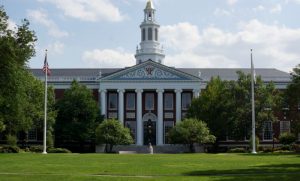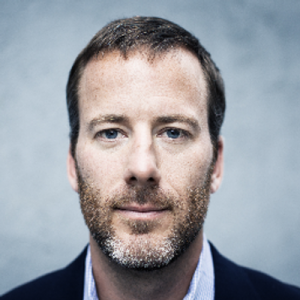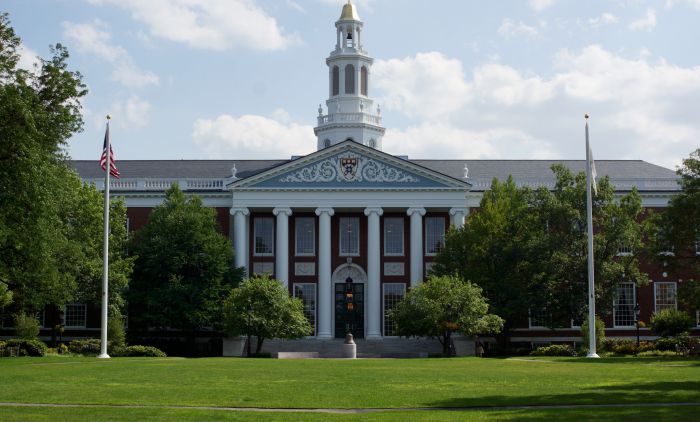Harvard Business School is the largest business school in the world, but is it fulfilling its founding mission of educating businesspeople who “handle their current business problems in socially constructive ways”? Duff McDonald, author of the recent The Golden Passport, speaks to ProMarket about whether business schools should incorporate ethics into their teaching and how he went about writing a book about HBS despite being denied access to HBS faculty.

In 1926, Harvard Business School dean Wallace B. Donham defined the “development, strengthening, and multiplication of socially minded business men” as the central problem of business. HBS’s objective, therefore, was “the multiplication of men who will handle their current business problems in socially constructive ways.” A similar objective, to develop “a heightened sense of responsibility among businessmen,” has been one of the school’s stated missions since its founding in 1908, at a time when business and the sort of men who practiced it were looked down upon by America’s intellectual elites.
Things, of course, have changed since then. HBS is now the largest and most dominant business school in the world. In the last 109 years it has become a “golden passport to life in the upper class,” while having a profound influence on corporate management, the American and global economies, and the evolution of capitalism itself. Some of that influence has been immensely positive: HBS helped the US win the Second World War and played a key role in creating the venture capital industry. Other contributions, argues author Duff McDonald in his book The Golden Passport (Harper Collins, 2017), have been far less beneficial to society. Prior to the 2008 financial crisis, for instance, the school’s graduates played “leadership roles in almost every institution that had made the mistakes that had brought the financial system to the brink.”
The Golden Passport, one of the most talked-about business books of 2017, charts the history of HBS, using it to launch a scathing critique of the impact of HBS and American business schools in general. On numerous opportunities, argues McDonald, HBS has abandoned its role as an independent academic institution, instead serving as a “cheerleader” to American corporations in the hopes of securing donations and access. When it comes to the original goal of creating a “more enlightened businessman,” he claims, HBS has failed as well.
McDonald, a veteran business journalist, is the author of two previous books, Last Man Standing (Simon & Schuster, 2009), a biography of Jamie Dimon, and The Firm: The Story of McKinsey and Its Secret Influence on American Business (Simon & Schuster, 2013). In an interview with ProMarket ahead of his upcoming visit to the Stigler Center (details here), McDonald spoke about his book, whether business schools should incorporate ethics into their teaching, and how he went about writing a book about HBS despite being denied access to any of its faculty.((This interview has been edited and condensed for length and clarity.))
Q: What made you decide to write an entire book about HBS? There are other prominent business schools; some might even argue that HBS is no longer the most prominent one.
I made the decision in a way similar to my last book. Both The Firm, with respect to management consulting and McKinsey, and The Golden Passport with HBS and the business school complex, told a larger story through the prism of the dominant brand. If I was to tell this story, the best institution would be the one that can act as representative of all of them. HBS goes back the farthest, and the case method makes it unique enough that there was some ability to talk about it as an individual and isolated case. Historical relevance, brand name recognition, pedagogical influence, landmark intellectual milestones, it just filled more [criteria] than any of the others in any particular era.
Also, just to be honest, the book has to sell—first to the publisher and then to the reading public. There’s really only one business school that you would want to base a mass-market nonfiction book on. Why Harvard? Because it’s Harvard.

Q: In the book, you accuse HBS of contributing to many societal ills, whether directly or indirectly. You even describe it as “dangerous,” for grooming the kinds of behaviors that brought the global economy to the brink. Isn’t that a bit unfair to single out HBS as responsible for developments that clearly involved broader social and political factors?
I think I’m a little more subtle than some of the reviews would like to believe. I don’t blame too much on HBS. A couple of reviews said I go so far as to blame the financial crisis on them—I don’t feel I did that.
Some people said it isn’t fair because I didn’t communicate with the current administration or faculty of the school. That was their decision—I asked on several occasions for some communication and they refused. But the result wasn’t that I decided to just tell one side of that story. The book is full of source materials on HBS positions, publications of HBS, statements of presidents and deans of the university, newspapers articles, other historical documents that did have access to people. I use their own words. It’s hardly the one-sided rant that some of the reviewers would have you believe.
The school has ample chances in the book to have its positions laid out clearly by using its own words. In my experience as a journalist, the reader wants to always beware the protests of uncooperative subject whose words are nevertheless used against them in a transparent way and at length. One of the discussions that I had with my editor, which I eventually won most of, was to let some of this stuff go on at greater length than we might otherwise have been inclined toward, because we needed to let the material and product of the school speak for itself.
It’s not that difficult to use the words of the faculty and administration of HBS to demonstrate outright hypocrisy. The institution does not seem to know itself, or the gap between its public remarks and its choices and actions, [which is] fairly obvious and wide. Both the promise and the failure to meet it, neither of those is my opinion—it’s just facts.
If there’s any unfairness in here, I would suggest they brought them on themselves by depriving themselves of the right to comment.
Q: HBS, you write, refused to give you access to faculty or historical materials from the last 50 years. How did you go about reporting and researching this book?
At first I was a little concerned, because it was the first of three books that I would be operating under those constraints. But I wasn’t too concerned about my ability to write something that hopefully enough people considered worth reading. Two-thirds of the people you’d want to talk to are dead anyway, so it wasn’t the huge prohibition on access that it might seem.
Part of the story came through the Ford and Rockefeller foundations’ archives. Not getting access to Baker Library, my feeling is that while it would have been great to go through the collections, professors’ collected records would surely would have been interesting, but not necessarily missed. I think that the story that needed to be told ended up in the pages anyway. I’m not saying I got the complete story, but the essence of the story most likely would not have been different. There may have been maybe some different details or anecdotes, but the song remains the same.
Q: One particular aspect of HBS on which you focus a lot of your criticism is its unique case study teaching method. Why?
The case method has a bunch of flaws. I’ve never studied under it, and every one that I spoke to swears by it, and that’s no small achievement.
But I think some of the problems with it are as big or bigger than some of the gains. One of them is a sort of amoral approach to decision making, the idea that there is no wrong decision, there are only better or less-articulated decisions, that I think breeds a certain mindset that allows corporate managers to talk themselves into things they might’ve otherwise not been able to do.
| “As much as you possibly can, don’t take in all the unstated assumptions that a lot of people in the business school universe either have stopped examining, or never did examine.” |
Q: One of your main arguments against HBS is that it “both instigates and reflects the paradoxes of modern-day capitalism,” instead of giving students any sense of its limits. Can you elaborate?
Before I was writing the book, I spoke to Ralph Nader, who pointed me to a book about Harvard Law School called The High Citadel that he wrote the forward to. He said it’s a great, really well-executed piece of how an institution lost the compass in regards to the intentions of its founders and founding principles.
He said one other thing: as much as you possibly can, don’t take in all the unstated assumptions that a lot of people in the business school universe either have stopped examining, or never did examine.
Typically and traditionally, academia has stood slightly outside the system that it seeks to credentialize or gate-keep. At least in the professions, it stood for quality and quality control and objective analysis of best practices. If they [HBS] seem to have started with a promise and even a desire to keep the system honest by keeping the people it was producing into it honest, they quickly made too many assumptions and never really re-opened them. One being: is American capitalism the only kind of capitalism that we could conceive of?
The point is that this is not physics. Capitalism is almost entirely man-made. We, the people, made a bunch of decisions, and decisions can be changed. [HBS] is part of part of a great university—their job is not to defend the decisions of business at all costs.
The case study method comes into play here because the access for insights, for corporate donations, for greasing the recruiting relationship, for alumni nepotism, that machine just started working so well that other inputs and determinants started to matter in ways that were slightly distorted from the original view. In time, if you want to over simplify it, they saw how big that pile of money was getting and decided to take the money and effectively walked away from whatever role one might have hoped they would have had as detached intellectuals, academics whose job is to clarify the language.
Q: “They took the money” is a repeated charge throughout the book. What do you mean by that?
It is difficult for anybody, including Harvard professors, to stay objective about the ideas behind a position if the person who holds those ideas is funding you. You want Marriott to help you build a new dining hall? Then it is unlikely that your publicly stated view of the capabilities of the same Marriott management team who wrote that check are going to be very much at odds with those required to keep receiving those checks.
|
“It is difficult for anybody, including Harvard professors, to stay objective about the ideas behind a position if the person who holds those ideas is funding you.” |
Q: One of the points you raise is that much of the criticism we hear nowadays regarding HBS and other business schools, such as their coziness with Wall Street and corporations, have been there since the beginning. What changed?
Let us not understate the positives—the definite contributions to and crucial input into helping establish American industrial dominance in the 20th century—but the hypocrisies have been there for a long time. It’s less that we found all these surprising things about HBS, this institution of enduring influence. It’s the other way around—that’s why it endured. It’s the best at doing the things that require the sustenance of influence.
Anyone who achieved the kind of influence that an institution like HBS did, especially one that’s in the business of influence, runs the risk of not wanting to release that influence and maintaining it at any cost and start tailoring the argument to fit the goals rather than seeking the answer and then trying to figure out why.
The arrogant dismissal of critique of a thing that is supposedly and nominally for the benefit of us all is the kind of elitist thinking that doesn’t sit well with everyone. Might you not want to consider the possibility that you are wrong about certain things? In the hard sciences, when confronted by incontrovertible evidence, people will normally back away from their positions. That kind of insistence, it’s offensive.
Q: Prior to becoming a journalist and author, you studied at Wharton and worked for Goldman Sachs, a typical background for a business school alumnus. Has your view of business schools changed? Would you say you are anti business school?
No. I am not anti business school. But if you take even a group of highly intelligent young people, they’re still young. Every 25 year old that you meet at the elite MBA realm is fairly sure they’ve got most of it all figured out. Anyone who is twice that age knows that that is not true. There is no substitute for experience, and the case method insists that there is and it is the heart of the school. We’re molding young minds and we can do a better job making them understand why are we doing this, rather than how are we doing this and what’s the best way to optimize your compensation.
One of the reviews of the book, in The Economist, suggested they should spin off HBS and have it go public as a for-profit enterprise. That wouldn’t strike me as inappropriate at all. That’s what it is at this point—it’s a business. It was subsumed by the system it was supposed to critique.
Q: Is it the responsibility of business schools to instill ethics in their teaching, to instruct students on how to differentiate between right and wrong?
On the one hand it’s not a school of ethics, it’s a school of business. On the other hand, a far more overwhelming argument is that of course it’s their responsibility—they’re the teachers. What is more important? I find it particularly offensive that the business school universe has so successfully convinced itself that business ethics is its own thing.
Q: HBS does offer ethics classes, though, and did work to incorporate more ethics into its teaching in recent years. Yet you seem skeptical about some suggestions raised by HBS faculty in recent years, such as a Hippocratic oath for MBA students. Why?
I just think doing things for show can only get you so far. I don’t think honor codes, making everyone promise to be good, work. But we can be encouraged by things like a more evolving curriculum, an acknowledgement of past failures or a change of perspective. There’s been some stuff coming out of there by Michael Porter’s group about the US government that would seem to be more critical that it would have been in decades past, so that’s encouraging.
For more on Duff McDonald’s new book, listen to the Capitalisn’t episode “The Moral Case Against the MBA”:
Disclaimer: The ProMarket blog is dedicated to discussing how competition tends to be subverted by special interests. The posts represent the opinions of their writers, not those of the University of Chicago, the Booth School of Business, or its faculty. For more information, please visit ProMarket Blog Policy.






